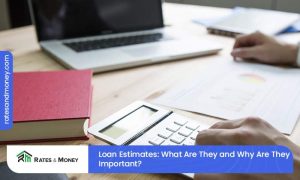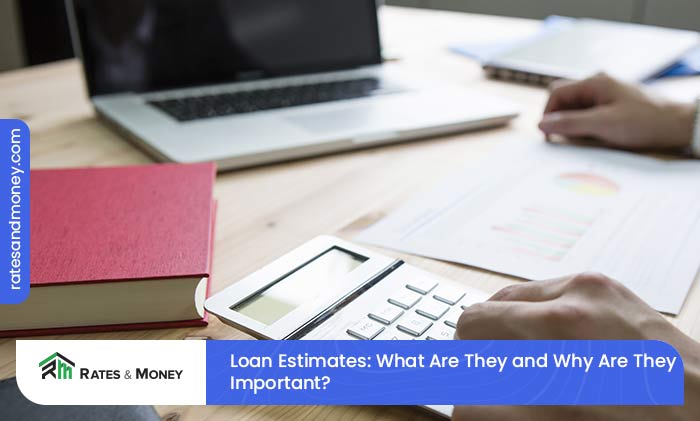Using a Refinance Home Loan Calculator

Table of Contents
Are you thinking about a home mortgage refinance? Wondering if it is the right time to make this kind of move? You only want to refinance your home if the act can save you money or help you out of a bad financial situation. Otherwise, there’s no pint. Using a refinance calculator can help you to make an informed decision about refinancing your home.
What Goes Into Home Loan Refinancing?
A home mortgage refinance resets the terms on your home loan. You can use the lender who originally financed your home, or choose someone else. If you shop your Refi around, you can compare rates. Usually, you’ll be seeking to drop your interest rate, and pay as little as possible in lender fees.
Why Do People Refinance?
It’s generally assumed that you got the best deal you could on your mortgage rates when you originally applied, However, a lot of things can change in just a few years. Your income can change, your goals can change, or you might need to get your hands on some cash quickly.
That said, most people tend to seek out a Refi for one of four reasons:
To get a lower interest rate
A lower interest rate means you’ll pay significantly less over the life of your loan in interest. This could be literally tens of thousands of dollars saved. A lower interest rate also means a lower monthly mortgage payment, which can help a lot if you are struggling to make your monthly payment on your current mortgage, and want to get help before you start missing payments and ruin your credit score.
To cash out equity
If you’ve built up equity on your home, you might need to lay hands on some of it for a large expense. This could be consolidating debt, sending a kid to college, doing major renovations on your home, paying for a wedding or honeymoon, buying a new car, or taking time off from work to care for an ill family member. In most cases, you can refinance 80% of your home’s value. If you have a special government backed loan, you may be able to get a cash-out refinance up to almost the entire value of the home.
To shorten your loan term
Maybe you started making a lot more money than you did when you got your current mortgage. You can shorten your loan term and raise your monthly payment, and pay off your loan faster. This can again save you tens of thousands in interest payments you won’t have to make.
To remove a requirement for private mortgage insurance (PMI)
If you bought your home under a mortgage loan program that allowed you to put down a very low down payment, you’ve probably been paying PMI ever since. If you’ve built up equity and your loan principal has fallen below 80% of your home value, you may be able to do a Refi and drop the PMI requirement, lowering your monthly payments.
Qualifying for a refinance
In many cases, a refinance can be streamlined based on your type of home loan and your lender. You might be able to refi without going back through the entire home loan approval and appraisal process. Your original lender may require less paperwork, but a new lender may offer better interest rates. If your financial situation and credit score haven’t changed drastically, qualifying shouldn’t be hard at all. If you’re just doing a Refi to get rid of mortgage insurance, the qualifications may be even easier.
What’s the Best Time to Refinance a Mortgage?
The best time to refinance a mortgage is when rates drop enough in relation to your current rate and allow you to make up any costs incurred with the new refinance in less than 2-3 years. To determine how long it will take you to break-even on your closing costs you can use a refinance home loan calculator.
If you see that average mortgage rates have dropped below your current rate, it’s time to check with a lender to see what rates and costs you can get based on your specific situation. Many lenders these days have transparent rates and fees on their website and provide customized rate quotes without requiring your personal information. If the current rates aren’t quite low enough to warrant a refinance, work with a lender who will provide you with regular weekly or daily rate updates so you can easily watch the market and be ready if rates dip.
Oftentimes it doesn’t take a big rate drop to consider refinancing. Most loan programs offer no cost refinances where the lender provides a credit to cover all lender and third-party fees. A no cost refinance will have a slightly higher interest rate than if you paid the standard closing costs, but this can still be a great way to refinance and benefit immediately rather than waiting months or years to make up the costs of the transaction.
What Factors Should Influence a Refi Decision?
Before you decide to commit to mortgage refinancing, take a look at everything that could influence your lender. Your credit score, income, employment stability, appraisal of the home when you bought it, changing property values, and home equity should all factor in. Are there special refinance options open to you like a no-cost refinance or a VA streamline refinance?
If you’ve recently missed monthly mortgage payments or your credit score has taken a hit, you may want to hold off a while before renegotiating your mortgage amount, and interest. The same holds true if you don’t have much equity built up on your home. You’d basically be paying the loan fees for a brand new loan without necessarily benefitting yourself unless interest rates just plummeted.
However, if you’ve had your mortgage for a while, have a lot of equity built up, and want to do some things like pay for home repairs, travel or education, or defray the cost of a special event or purchase, you can cash out equity in your home. You can also use an equity refinance to consolidate high interest debt, but make sure the numbers make sense.
Can A Refinance Home Loan Calculator Help?
A refinance calculator takes information you plug in and crunches the numbers for you to help you make a fully informed Refi decision. Make sure you have the following information to hand before using a refinance calculator:
- Amount of your original mortgage
- Original loan term
- Current mortgage interest rate
- Balance left on your mortgage
- New interest rate (if known)
- Estimated refinance closing costs (usually 2-6% of your refinance loan amount)
Plug these numbers into the calculator and find out facts about your potential savings or benefits from a refinance. You can manipulate the data to see how much interest you’ll save if you refinance for a lower rate. You can check and see how much your monthly payment would rise or drop by tweaking your loan term. You can find out how much equity you can cash out, and what the tradeoff is.
Ready to Apply For a Home Loan or Refi?
Are you curious about mortgages, or are you ready to apply for one to buy a home or to refinance your existing loan? There are plenty of great mortgage programs available to help you buy the home you’ve always dreamed of. Getting preapproved for a home loan is a great first step.
Rates & Money is your go-to destination for free information about mortgages. Our home buyer guides and home loan articles are designed to help you make informed decisions when buying or refinancing a home. View loan limits in your area.
Subscribe to our newsletter
Receive the latest news, tips, and free tools from Rates & Money.





